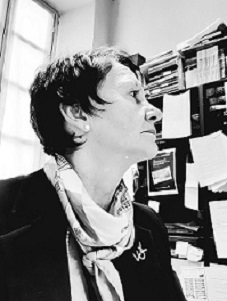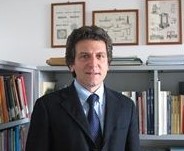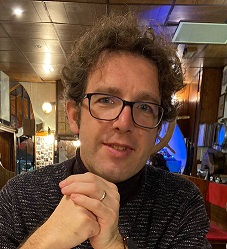African Journal of Humanities and Social Sciences
|
African Journal of Humanities and Social Sciences
|

Lead Guest Editor
Dr. Anna Rosa CANDURA
Associate Professor
Department of Humanities
University of Pavia, Italy.

Guest Editor
Dr. Paolo DI BARBA
Full Professor
Department of Industrial &
Information Engineering
University of Pavia, Italy.

Guest Editor
Dr. Matteo DI TULLIO
Assistant Professor
Department of Humanities
University of Pavia, Italy.
Submissions Open: 03 January 2024
Submissions Deadline: 15 October 2024
Article Processing Charges (APC's): 600 Euro
Journal Name: African Journal of Humanities and Social Sciences
Journal Publisher: SvedbergOpen
Manuscripts to be submitted to: acandura@unipv.it (or) paolo.dibarba@unipv.it (or) matteo.ditullio@unipv.it
Call for Papers
African Journal of Humanities and Social Sciences (AFJHSS) is an international peer-reviewed open access journal published biannual by SvedbergOpen. The main objective of AFJHSS is to provide an intellectual platform for social scientists, researchers, professionals, academicians and research scholars to share their ideas. AFJHSS operates a double-blind reviewing policy in which the anonymity of authors to reviewers and reviewers to authors will be ensured so as to make the review process unbiased.
The incipit of the title is inspired by a famous work of 1864 by George Perkins Marsh: “Man and Nature: or, Physical Geography as Modified by Human Action”. This is just one of the many reflection cues on the history of what we call “sustainability”; the countless facets of interaction between Man and Planet have been investigated in different ways and times, with various observations and conclusions (to give another example, think of Tertulliano and his work “De Anima”). Wherever there has been a thought, this thought has been grounded in a territory and has taken different forms in different regions.
The vital oscillation Determinism/Possibilism has generated a Man-Environment dynamic, an uninterrupted process of giving and taking which is made up of incessant exchanges between disciplines, in a virtuous circle where knowledge has no (should not have) barriers. Water, simultaneously, represents and contains human choices and identities: it can, in fact, be a barrier or, on the contrary, a unifying element, a boundary or a frontier, a generator of energy or a nourishment for the human organism and for the Earth organism. In the unraveling of the “Anthropogeographic landscape as a form of equilibrium” (Sestini, 1947), water is all these things.
In this context, the study of infrastructures assumes great importance, both when analyzing the communication routes (therefore the dissemination of knowledge) and when examining the image/identity of the different technologies put in place by Man in various times and territories: in a certain sense, the history of τ?χνη (téchne).
Accordingly, we will consider research articles of 5,000-7,000 words and opinion pieces of 3,000-4,000 words regarding Man and Nature dynamic, infrastructures, technology, Cartography and boundaries.
More specifically, contributions should include, but are not limited to:
The infrastructure environment and the “electric territory”: museums and archives as foundations of knowledge, Identity, settlements and communication routes, Cartography and infrastructures: the image of technology, Man, waters and bounndaries.
Manuscripts should be prepared as per the Journal's guidelines. Please see the link below for guidelines to the authors:
https://www.svedbergopen.com/afjhss/guidelines-to-authors
Copyright © SvedbergOpen. All rights reserved

